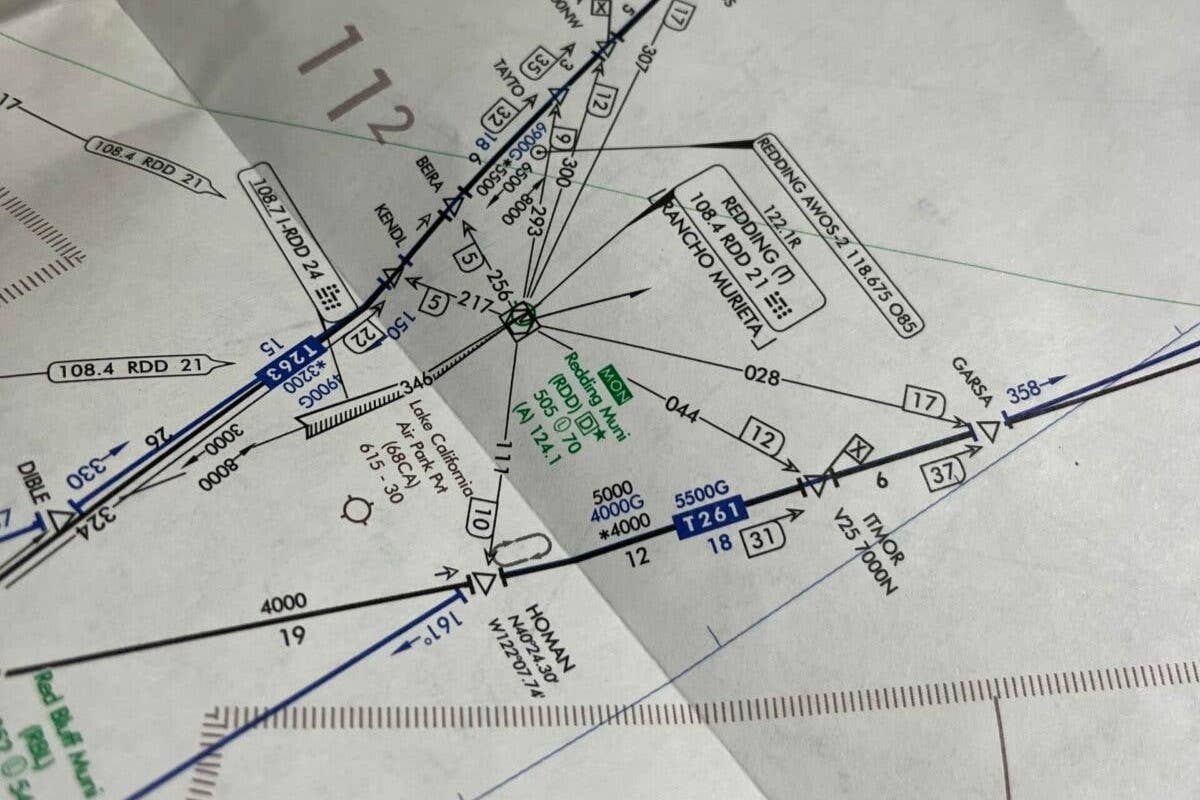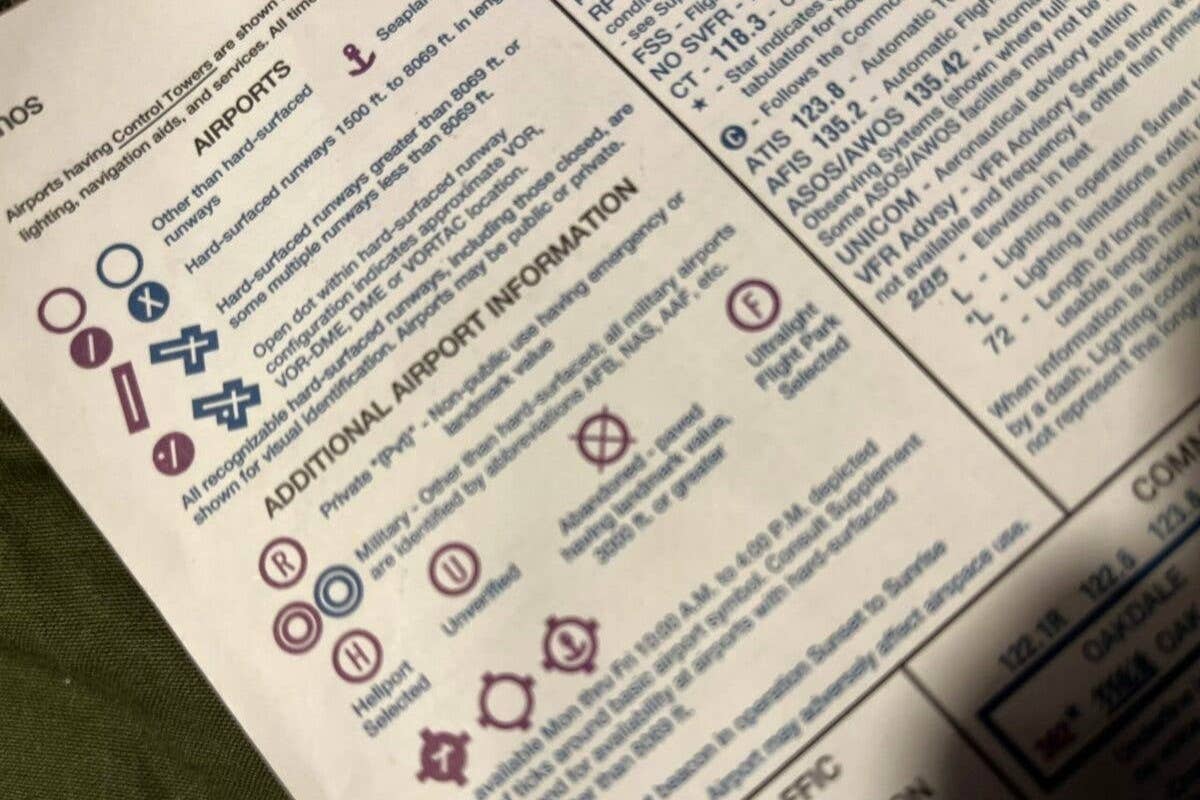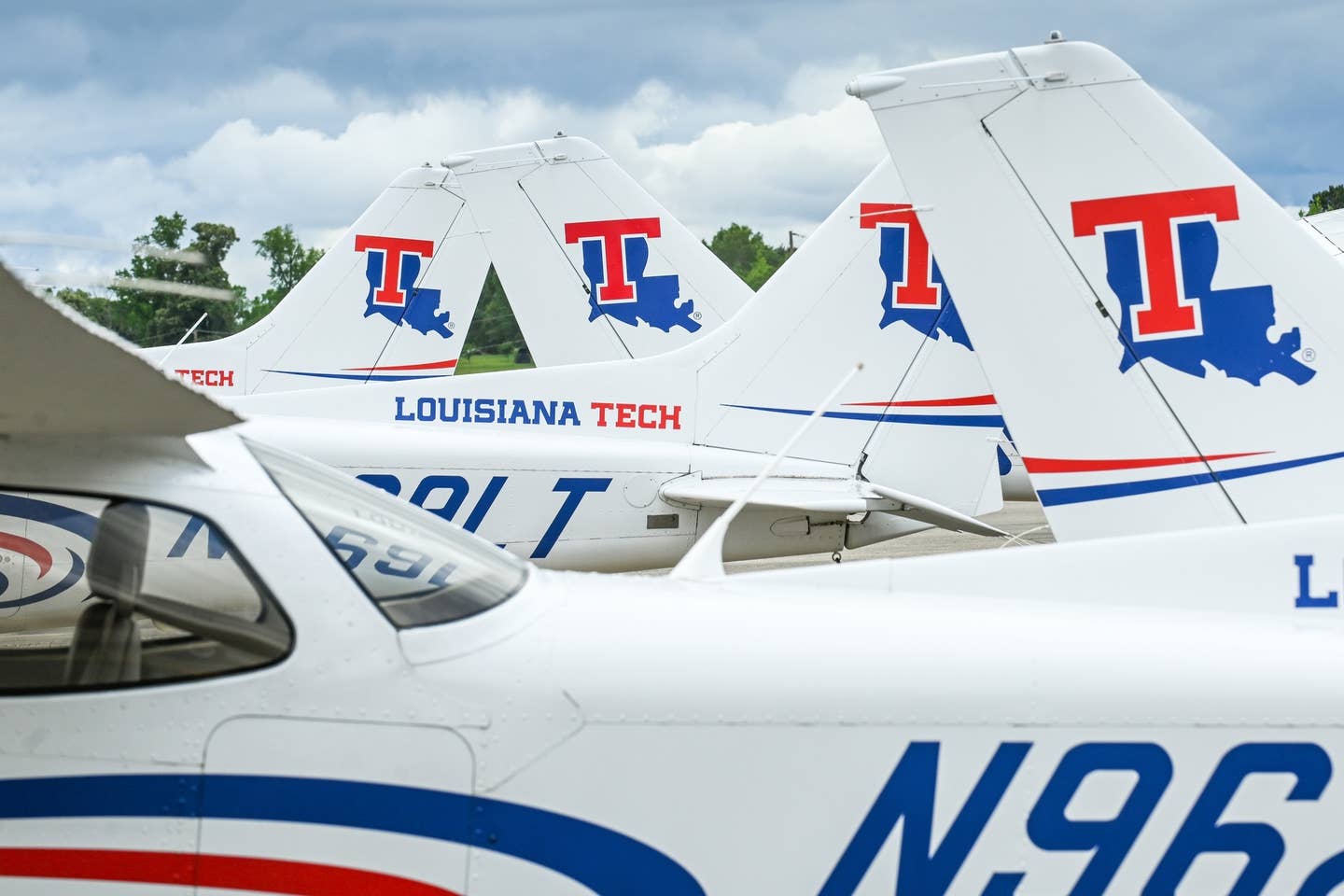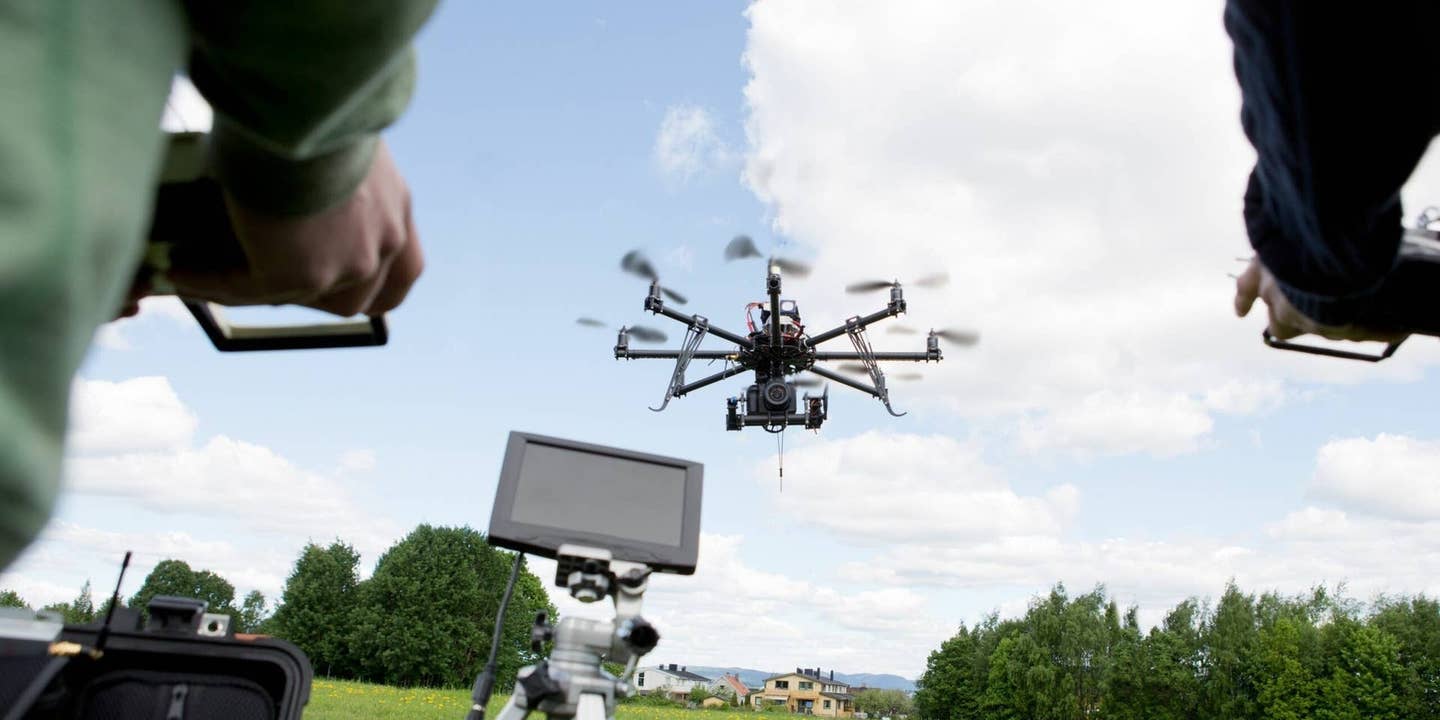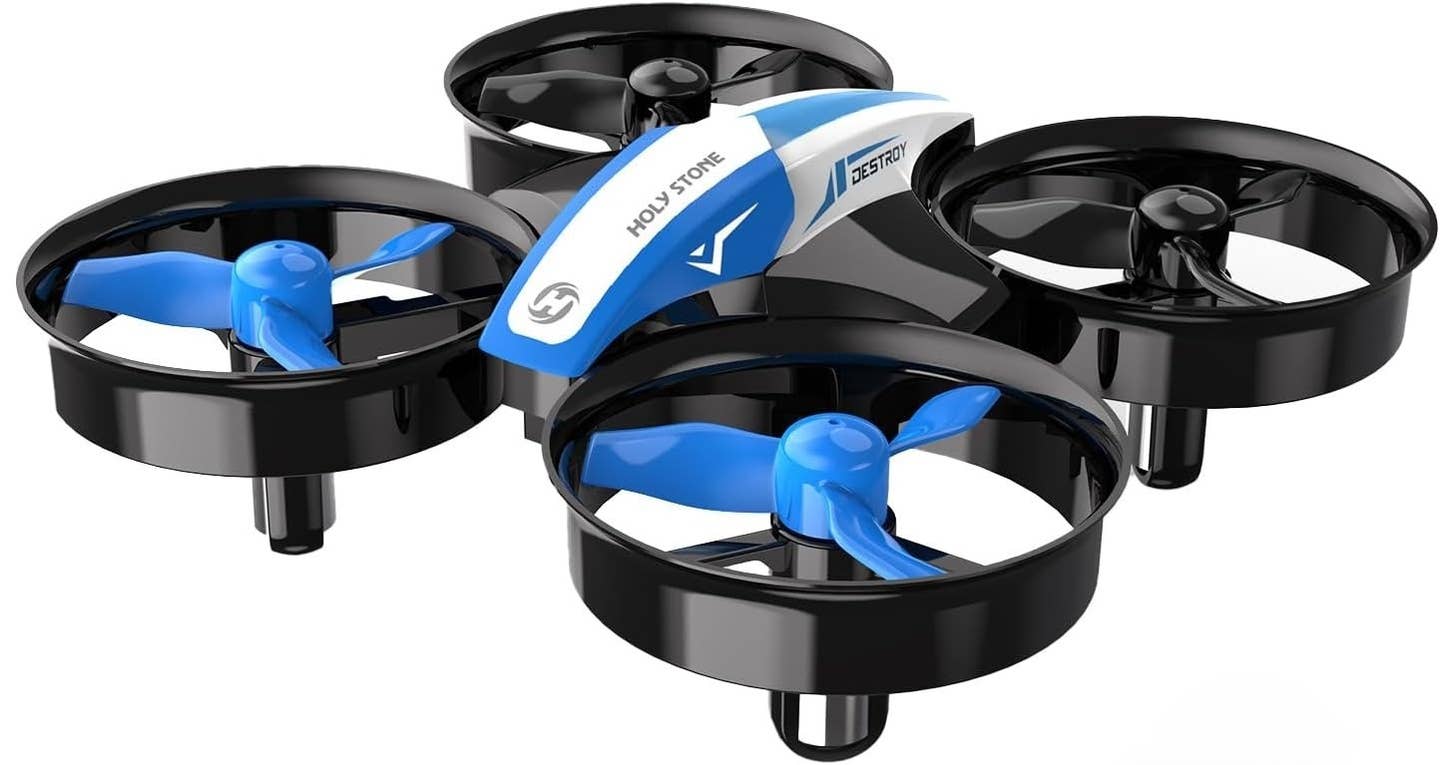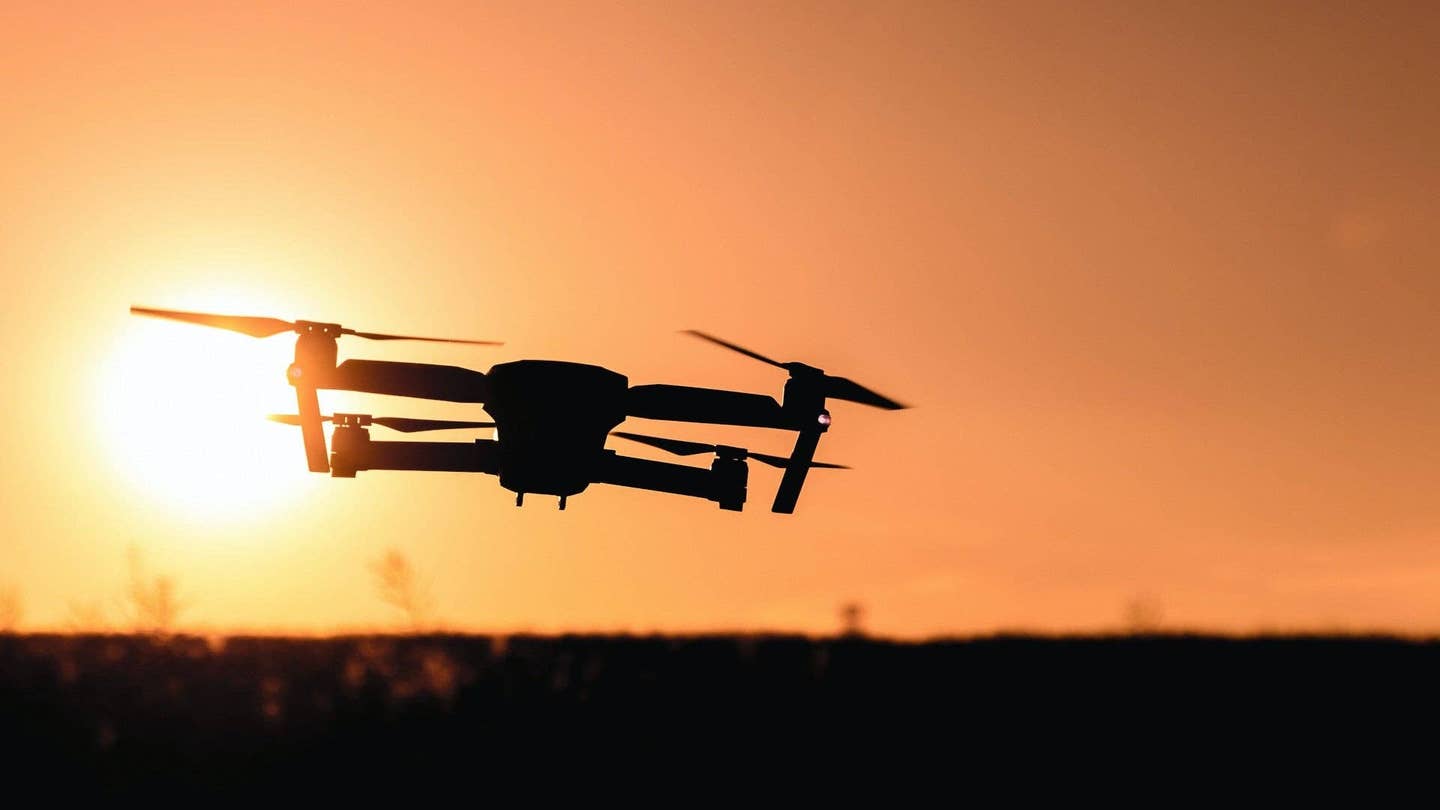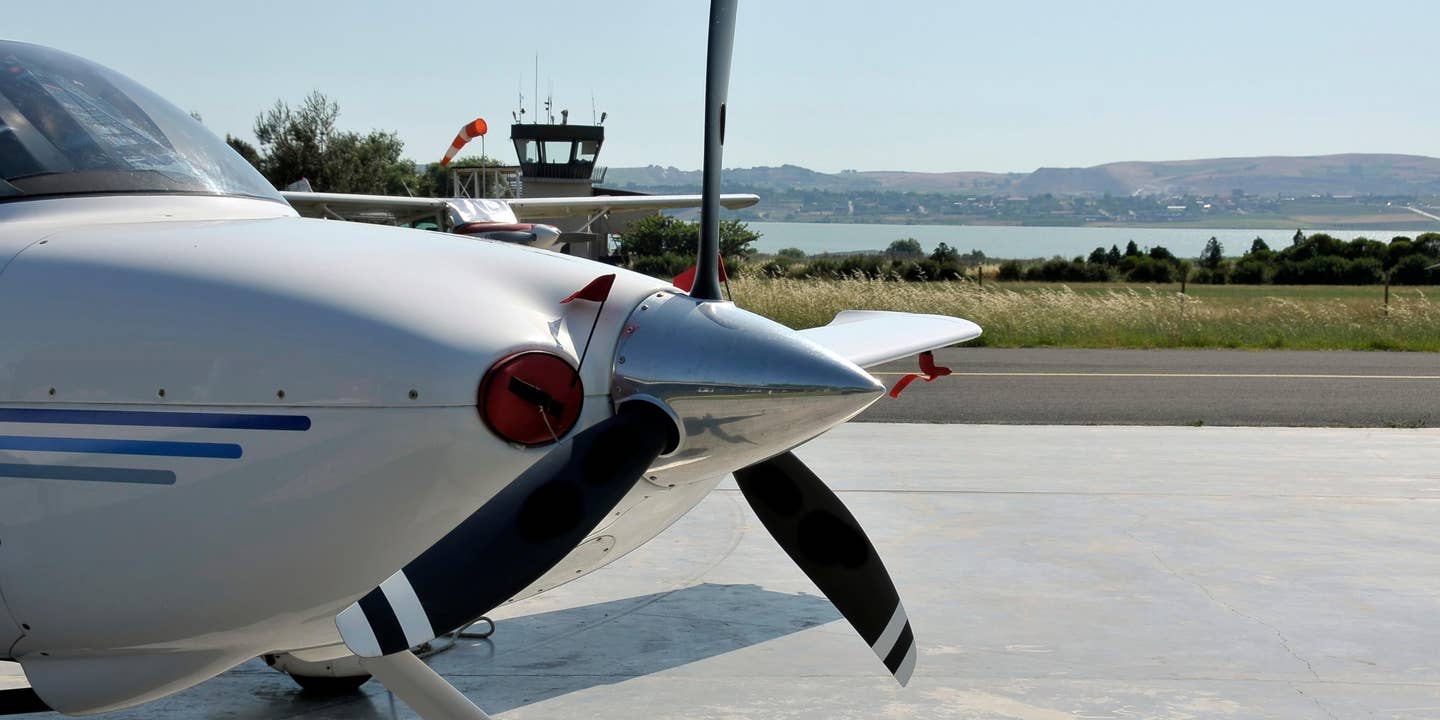
Looking for a flight school in Michigan? This guide is here to help. [Credit: CanvaPro]
Editor’s note: The following article is not intended to be a ranking, but is only to serve as a list of possible options.
With a vast expanse of lakes, forests, and diverse landscapes, Michigan offers an intriguing setting for flight training. Whether you're aspiring to become a commercial pilot, private pilot, or simply want to become a weekend flyer, Michigan has plenty of flight schools to suit your needs.
While there are many good programs in the Great Lake State to choose from, we highlight these 10 schools for their variety of offerings to meet the different objectives of aspiring pilots.
Quick Look: Flight Schools in Michigan
- Western Michigan University College of Aviation
- Andrews University
- Eastern Michigan University
- Northwestern Michigan College
- MIAT College of Technology
- Northern Michigan University
- Siena Heights University
- Lansing Community College
- School of Missionary Aviation Technology (SMAT)
- Schoolcraft College
- Top-notch flight instructors: Sporty’s Academy
10 Flight Schools in Michigan
Now that you know how to become a pilot in Michigan, you’ll need to decide which schools offer all that you specifically need. Have you thought about the course offerings, average class sizes, or graduation rates?
Can the school help you find a job after graduation? How much is the tuition and what options does the school have in terms of financial assistance?
To help you find answers to these questions and more, we’ve listed the 10 best flight schools in Michigan.
Western Michigan University College of Aviation
Western Michigan University College of Aviation boasts over 1,100 undergraduate students, making it one of the largest aviation programs in the nation.
Location: 237 Helmer Rd. North, Battle Creek
Graduation rate: 67 percent
Tuition and fees: Ranges from $630.25 to $864.38 per credit hour, in addition to additional flight school fees as well.
Financial assistance: WMU participates in federal-, private-, and university-funded loan programs. The College of Aviation offers internal scholarships, and WMU also has scholarships available to the entire student body.
Accreditations: Aviation Accreditation Board International (AABI). Additionally, the FAA certifies WMU facilities for pilot training via MDOT licenses.
Program length:
- Aviation Flight Science Bachelor of Science: 4 years
- Aviation Management and Operations Bachelor of Science: 4 years
- Aviation Maintenance Technology Bachelor of Science: 3.5 years
Endorsements: WMU provides flight training for the FAA Commercial Pilot’s License with instrument rating and multiengine endorsements.
Class size: On average, class sizes at the College of Aviation range from 25 to 30 students.
Job placement: The College of Aviation helps identify job opportunities and internships that are available for students. Partner companies and school alumni look out for applicants who are in search of jobs and internships.
Virtual learning: Technology-related resources are available for aviation students who need assistance with distance education, computer programs, IT problems, and more.
Andrews University
Andrews University is a private, nonprofit university in Berrien Springs. It was originally called Battle Creek College, and it is the top university within the Seventh-day Adventist Church’s school system.
Location: 4150 Administration Drive, Room 136, Berrien Springs
Graduation rate: 47.2 percent
Tuition and fees: Core aviation courses currently total $65,110. Beyond this, tuition comes to $1,155 per credit hour in most cases, in addition to miscellaneous fees, room and board, and any add-on aviation courses beyond the core curriculum.
Financial assistance:
- Federal student aid
- Student work study
- Ministry work
- Scholarships
Accreditations: Higher Learning Commission (HLC); Adventist Accrediting Association (AAA)
Program length:
- Aircraft Maintenance Certificate: 1 year
- Aviation Flight Certificate: 1 year
- Aviation Flight, AT Associate Degree: 2 years
- Aviation Maintenance, AT Associate Degree: 2 years
- Aviation, BT Bachelor Degree: 4 years
Endorsements: Complex endorsements are available from authorized instructors.
Class size: On average, fewer than 20 students.
Job placement: Career center helps students prepare for employment and has programs to assist in finding jobs after graduation.
Virtual learning: Online classes are available.
Eastern Michigan University
Eastern Michigan University started as a teachers’ school over 100 years ago. Since then, the school has grown into a large education and public research university. EMU’s GameAbove College of Engineering and Technology offers technical programs and professional services management for undergrads.
Location: 207 Sill Hall, Ypsilanti
Graduation rate: 39.7 percent
Tuition and fees: About $7,960 per year. The flight school costs around $70,000 in addition to the base rate of tuition.
Financial assistance: Applications offered for financial aid, grants, and scholarships, as well as loans for undergrad students and some for graduate students.
Accreditation: Higher Learning Commission (HLC)
Program length:
- Aviation Flight Technology Bachelor of Science: 4 years
- Aviation Management Technology Bachelor of Science: 4 years
Endorsements: Complex endorsements are available from certified instructors.
Class size: Average is 14 students.
Job placement: Students are provided with job search assistance for careers with small and large airlines. Help is available for students looking to join a military aviation program as well. Several graduates land teaching roles at EMU within the first year or two after graduation, allowing them to log more air time before applying for industry jobs.
Virtual learning: Virtual courses offered, with the exception of aviation classes.
Northwestern Michigan College
Northwestern Michigan College is a community college in northwestern Michigan. Associate degrees are awarded upon completion of the flight crew and pilot training programs.
Location: 1701 E. Front St., Traverse City
Graduation rate: 35.9 percent
Tuition and fees: Ranges from $126 per credit hour for in-district residents, to $394 per credit hour for international students. Aircraft rental and hourly instructor fees are charged separately.
Financial assistance: Grants, scholarships, and loans are available.
Accreditation: FAA; Federal Aviation Regulation
Program length:
- Aviation Flight: 1 to 2 years
- Aviation Ground: 1 to 2 years
- Unmanned Aerial Systems: 1 to 2 years
Endorsements: An official endorsement can be earned voluntarily by meeting certain criteria.
Class size: Average is 22 students.
Job placement: Students have a nearly 100 percent postgraduation placement rate.
Virtual learning: Online courses offered.
MIAT College of Technology
The Michigan Institute of Aviation Technology in the township of Canton. The school offers degrees in several industrial trades, including aviation maintenance.
Location: 2955 S. Haggerty Rd., Canton
Graduation rate: 65.3 percent
Tuition and fees: Complete program cost for an Aviation Maintenance Technology diploma is $45,570.
Financial assistance: Grant aid averages about $1,750 per student per year. Loans are also available.
Accreditations: Accrediting Commission of Career Schools and Colleges; FAA.
Program length:
- Aviation Maintenance Technology Associate Degree: 24 months
- Airframe and Powerplant Technician Certificate: 20 months
Endorsements: None
Class size: Average of 10 students
Job placement: Employment assistance offered to all graduates.
Virtual learning: Most, but not all, courses require hands-on participation, but some courses can be completed online.
Northern Michigan University
Northern Michigan University is a public college and aircraft maintenance school located in Marquette. Flight degrees are available. You can also earn an associate degree or a certificate in Aircraft Powerplant Technology.
Location: 1401 Presque Isle Ave, Marquette
Graduation rate: 36 percent
Tuition and fees: $543.50 per credit hour, in addition to flight fees.
Financial assistance: On average, students can receive grant aid that totals $12,000 per student. Students may also qualify for scholarships or federal loans to assist with tuition and expenses.
Accreditation: FAA
Program length:
- Aviation Maintenance Technology Associate Degree: 2.5 years
- Aviation Maintenance Technology Certificate: 2 years
Endorsements: No endorsements offered in aviation.
Class size: Average class of 20 students
Job placement: Resources and services offered to assist in career placement.
Virtual learning: Virtual learning options provided for many courses.
Siena Heights University
Siena Heights University is a small, nonprofit, private Roman Catholic university founded in 1919. Located in Adrian, the college offers degree programs in multiple disciplines, including two bachelor’s degrees in flight programs.
Location: 1247 E. Siena Heights Drive, Adrian
Graduation rate: 67 percent
Tuition and fees: Estimated to equal $28,500 per year, in addition to flight fees.
Financial assistance: Estimated total grant aid is $13,352 per student. Students may also qualify for scholarships or federal loans to assist with tuition and expenses.
Accreditation: Higher Learning Commission (HLC)
Program length:
- Bachelor of Applied Science in Aviation Flight Technology: 4 years
Endorsements: No endorsements offered in aviation.
Class size:Average of 12 students
Job placement: Career Services offers resources and services to assist in career placement, including connecting students with 300-plus employers.
Virtual learning: Virtual courses offered. However, all aviation courses are in-person classes.
Lansing Community College (LCC)
It offers certificate programs and associate degrees in aviation technology in addition to many other fields. South of its downtown location, LCC has new aviation facilities located in Mason.
Location: 409 N. Washington Square, Lansing
Graduation rate: 18 percent
Tuition and fees: Ranges from $240-$420 per credit hour, depending on residency status.
Financial assistance: Grants, scholarships, and student loans are available for undergraduates.
Accreditation: FAA
Program length:
- Airframe Maintenance Technology, AAS: 2 years
- Airframe Maintenance Technology, CA: 1 year
- Basic Aviation Technology, CC: 1 year
- Powerplant Maintenance Technology, AAS: 2 years
- Powerplant Maintenance Technology, CA: 1 year
Endorsements: No endorsements offered in aviation.
Class size: Average of 17 students
Job placement: Job Referral Program helps students find postgraduation jobs.
Virtual learning: Virtual courses offered, though not for aviation.
School of Missionary Aviation Technology (SMAT)
Founded in 1970, the School of Missionary Aviation Technology trains individuals to serve mission organizations as either pilots or aircraft maintenance technicians. Due to the unique nature of global missionary service, these aviation specialists require a special level of knowledge, skills, and attributes, all of which are specific to reaching remote locations all around the world.
Location: 84 E. Sprague Rd., Ionia
Graduation rate: 96 percent
Tuition and fees: Estimated $13,879 per year
Financial assistance: On average, students can receive $3,109 in aid. Students can also apply for scholarships or federal loans to assist with the costs of tuition and school-related expenses.
Accreditation: FAA
Program length:
- NBI Bible Certificate: 1 year
- Accelerated FAA Certified Airframe and Powerplant Mechanics Course: 2 years
- Private Pilot’s License and Commercial Certificate with Instrument Rating: 3 years
Endorsements: Single-engine HP endorsement and tailwheel endorsements are available through the School of Missionary Aviation Technology.
Class size: The student body encompasses 27 students in total, and the average class size is seven.
Job placement: Provides job placement services for graduates
Virtual learning: No online courses offered.
Schoolcraft College
Schoolcraft College is a publicly-funded community college that was founded in 1961. Located in Livonia, the school offers programs that result in Aviation Management associate degrees and certificates.
Location: 18600 Haggerty Rd., Livonia
Graduation rate: 17 percent
Tuition and fees: Ranges from $139 to $270 per credit hour, depending on residence status.
Financial assistance: Total grant aid is estimated to be $2,250 per student. Students can also qualify for scholarships or federal loans to further assist with tuition and expenses.
Accreditation: Higher Learning Commission (HLC)
Program length:
- Associate Degree in Aviation Management: 2 years
- Associate Certificate in Aviation Management: 1 year
Endorsements: Students may earn a Global Endorsement of 15 hours if specific courses are completed.
Class size: Average of 19
Job placement: Career services office conducts seminars covering topics such as résumé writing, interview skills, career fairs, and employer relations.
Virtual learning: Courses are available online.
How Does Flight School Training in Michigan Work?
A driver’s license allows a person to lawfully operate a motor vehicle. Similarly, a pilot’s license allows someone to legally fly an aircraft.
Michigan does not license aircraft pilots on a state level, so you will need to get a certification from the FAA. Anyone who wants to operate an aircraft has to obtain a license in order to become a pilot in Michigan.
Numerous career opportunities exist within the aviation industry. The number of opportunities out there will depend on the type of aviation license that you want to earn.
In order to become a pilot in Michigan, you first must take classes and work towards earning a basic Private Pilot License (PPL) from a licensed flight instructor. Prior to officially beginning flight instruction, a Student Pilot Certificate is also required.
- Student Pilot Certificates allow you to receive instruction from a Certified Flight Instructor (CFI) and work toward getting your private pilot’s license.
- Private Pilot Licenses (PPLs) allow individuals to operate most single engine aircrafts and teach students how to fly during inclement weather. PPLs cannot be used for paid flights, but PPL holders can fly solo or with passengers for free.
- Commercial Pilot Licenses (CPLs) are required for pilots who want to make a living flying any type of aircraft.
- Instrument Ratings (IR) are also known as instrument meteorological conditions (IMC). These certify pilots who want to fly during periods of low visibility.
- Airline Transport Pilot (ATP) licenses are a prerequisite to flying for any of the major airlines. You must first obtain your PPL and CPL certificates, and from there, you can start working towards your ATP license.
- Multi-Crew Pilot Licenses (MPLs) are an airline-specific alternative to the Airline Pilot Transport License (ATPL).
- Certified Flight Instructors (CFIs) train student pilots and teach them how to fly different types of aircraft in various weather conditions.
- Multi-Engine Instructors (MEIs) are certified to teach flight students who want to become certified to fly multi-engine aircraft.
Or try an online ground school like Pilot Institute. From Private Pilot to Part 107 drone license course, it has helped thousands of students reach their aviation goals. Pilot Institute is so confident you’ll pass the first time around, it will give you a check for $175 and refund your course tuition if you don’t.
Michigan Flight School Facts and Figures
How do you know which is the best flight school in Michigan? It can be difficult, but let us help.
We’ll start by taking a look at the number of flight schools in Michigan, the average number of students per class, and how much they cost in Michigan.
We’ll also tell you all about where you can locate applications for available scholarships, grants, and loans. We will compare graduation rates and job placement assistance, as well as the best aviation employers and salary expectations for graduates of the best flight schools in Michigan.
Number of Schools
There are currently dozens of licensed flight schools in Michigan. The majority of them are located in and around the Greater Detroit and Grand Rapids areas.
Some are peppered across the Traverse City area, and a few more are located in the central-most part of the state. Many of these flight schools in Michigan are aviation and flight colleges that offer various degree programs and certified flight instruction.
Number of Students Per Class
Most flight schools in Michigan have class sizes anywhere from 25 to 30 students on average. During ground instruction, flight schools in Michigan may average between three and 15 students per class. When receiving flight instruction, however, every student receives individual, one-on-one direction from their flight instructors.
Tuition Rates
Tuition rates vary significantly depending on whether a school is private or public, as well as on residence status. Bear in mind as well that credit hour tuition does not, in most cases, cover fees associated with flight training, such as hourly instructor fees and aircraft rental.
Average Loan Amount
Many students find that they only need to take out a loan to cover their tuition expenses. As noted, these costs can range anywhere from $10,000 to $45,000. If students take out a loan, it will be a personal loan investment based on the school.
Scholarships
Scholarships are available for flight school, as are grants and loans. The average amount of money that scholarships offer for flight schools in Michigan is approximately $2,000 annually.
Job Placement
Many accelerated flight training schools in Michigan provide job placement opportunities to graduates. Some flight schools in Michigan have agreements with airlines, meaning they can make employment offers to some of their graduates. Be sure to review the job placement agreements, as some schools offer actual job placements while others can only guarantee an interview.
Michigan Pilot Employment Facts and Figures
- Michigan is a top U.S. state for pilot opportunities and earning potential.
- Michigan is ranked No. 1 for average airline pilot salaries.
- From $114,640 to $238,270 per year, pilots receive a 107.8 percent raise in four years.
- Michigan employs over 3,000 airline pilots.
- There are over 1,000 non-airline commercial pilots in Michigan.
- Commercial pilot jobs in Michigan are expected to increase by 5 percent by 2028.
- Michigan organizations employ 4,040 airline or commercial pilots.
- Currently, there are over 600 estimated pilot jobs available in Michigan.
Salary
Michigan’s average airline pilot salary is $140,201. This amounts to approximately $11,683 per month or $2,696 per week.
However, the salary range for pilots in Michigan falls between $121,000 and $158,000. This equates to roughly $10,083 to $13,167 per month or $2,237 to $3,038 per week.
When considering all pilots in Michigan—not just airline pilots—the average annual wage is $63,860. This is the equivalent of $5,322 per month or $1,228 per week.
Salaries can vary widely because they depend on location, education level, certifications awarded, learned skills, and years of experience.
FAQ
How much is flight school in Michigan?
Flight school programs can cost between $10,000 and $20,000 for private pilot training. To reach the level of licensing and education required to become a career pilot, the overall cost increases to between $65,000 and $105,000 for an FAA-certified program.
How do I become a pilot in Michigan?
If you can meet the age, health, and communication requirements to become a private pilot, you will log at least 40 hours in the air (most students spend 50 to 70 hours) before you get your Private Pilot License. You will train with a certified flight instructor, pass all exams, and eventually take local solo flights, do your own flight planning, and take night flights before making several solo long-distance flights.

Sign-up for newsletters & special offers!
Get the latest FLYING stories & special offers delivered directly to your inbox

